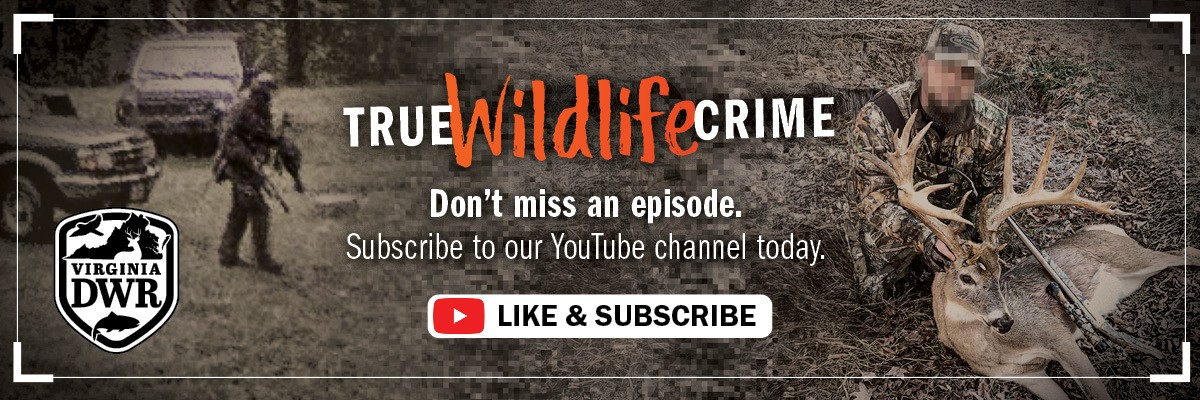By Bruce Ingram
Photos by Bruce Ingram
This past spring, I was more than ready for opening day of Virginia’s spring gobbler season. While scouting, I had located a red-hot tom on a Botetourt County cattle spread near my house, and the farm was one I’ve hunted for two decades. The longbeard roosted in a pine glade where turkeys often spend the night, and at dawn, he was very likely to head for a pasture that borders the pine stand.
So, in pitch dark on opening morning, I set up against a Virginia pine overlooking the opening and waited for the inevitable gobbling that the bird was likely to initiate. I also positioned a hen decoy 15 yards from my setup and made tree yelps and soft clucks during the pre-dawn period. But as fly-down time came and went, I heard nothing. Nor did I hear or see my quarry that morning. Around 11:30, it was time to head to my truck, so I decided on my way out to check the roost site for droppings and other sign.
At the roost area—to my horror—I found a dead gobbler, which appeared to have been there a week or so. Had someone poached the bird before the season began? Had someone shot and wounded the tom during the Youth and Apprentice Hunter weekend? Or perhaps the gobbler had been the victim of a great horned owl or some other predator? The final question that occurred was if I should report the incident to my local Conservation Police Officer (CPO)? At first, I hesitated to do so, because I didn’t want to be a bother and because all I had was questions and no proof of any game violation. But the next day, I did contact CPO Shane Wilson, who has Botetourt County as part of his coverage area.
“By all means, we want the public to contact us if they think they see something amiss or even if they have questions about something that might have happened,” Wilson said. “Maybe we can solve the problem over the phone, but we definitely do not mind coming to a property to check things out. It’s not a burden on us to do these things—it’s our job.”
Bedford-based CPO Leslie Wright agrees with Wilson.
“It happens all the time that the public sees something that might be a violation,” Wright said. “These folks may not feel comfortable confronting a neighbor about what they witnessed. That’s understandable, and it’s not the public’s job to investigate. It’s our job to find out what the answers are.”
Wilson added that Virginia CPOs are extensively trained to solve game violations. They use modern technology such as trail cameras, but also utilize old fashioned hunting skills such as searching for tracks (both human and wildlife), blood, and carcasses. Our CPOs also know certain tendencies of game violators.
“For example, big buck poachers typically cut off the rack and the bottom loins and leave the rest,” Wilson said. “Real hunters would never do that. Bear poachers typically just cut off the claws, so they can brag to their friends about them. Turkey poachers usually just cut off the beard and spurs.”
Wilson adds that with the dead turkey I found, the beard and spurs were still intact. It’s possible that a predator may have killed the gobbler, but it’s also possible that the bird was illegally shot on a bordering property or even on that particular parcel and ran or flew to where I found it.
To help determine what happened, as is standard procedure, Wilson positioned trail cameras on the farmer’s land and also visited it during hunting hours. Because that particular gobbler had been dead a week or so, the CPO was not able to utilize a K9 Conservation Police Officer.
“A K9 is an amazing animal and a great asset for solving violations,” Wilson said. “Humans shed millions of skin cells wherever they go, and our dogs can find and follow those scent trails even if they are two or three days old. Our dogs are also trained to find shot wads, ammo, and pellets as well as identify deer, turkey, and bear scent.”
Although what happened to that Botetourt gobbler remains a mystery, I’m reassured that contacting my local CPO was the correct decision. To report a possible violation to the DWR Wildlife Crime Line, call 1-800-237-5712, text DWRTIP plus your tip to 847411, submit a tip online, or email WildCrime@dwr.virginia.gov.


